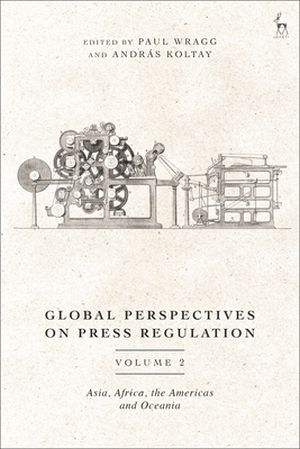
In this ground-breaking two-volume set, world-leading experts produce a rich, authoritative depiction of the world's press, its freedom, and its limits.
We want press freedom but we also want freedom from the press. A powerful press may expose corrupt government or aid it. It may champion citizens or unfairly attack them. A vulnerable press may lack supporters and succumb to conformity. It may resist, and overcome tyranny. According to common belief, press freedom involves social responsibilities to equip public debate and render government transparent. Is this attitude valid given that the press is usually a private, commercial actor?
Globally, the health, authority, and viability of the press varies dramatically. These patterns do not conform to traditional divisions between North and South, East and West. Instead, they are much more complex. How do we measure successful press regulation? What concessions can the state and/or society demand of the press? What constitutes the irreducible core of press freedom?
The contributions in Volume 1 look at key jurisdictions in Europe; whereas Volume 2 goes beyond Europe to analyse the situation in key jurisdictions in Asia, Africa, the Americas and Oceania. Each volume can be used independently or as part of the complete set.
This work will be incredibly valuable to policy makers and academics who seek to capture the global picture for the purposes of effecting change.